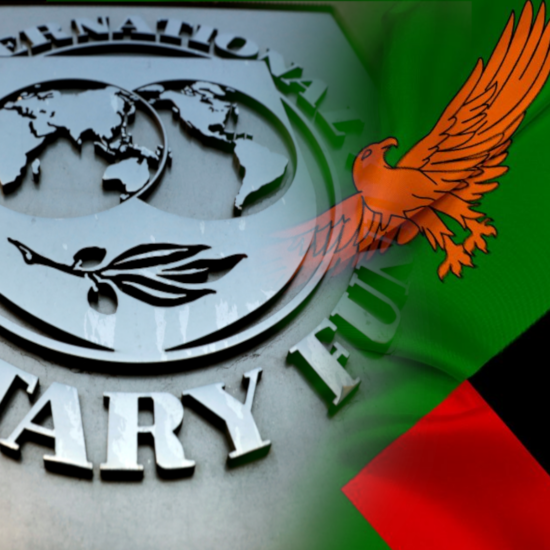
The International Monetary Fund – IMF should not just look at lumping more debt on Zambia’s existing debt burden but instead help the country on how best it can retain forex back into the country from its boosted copper exports.
With improved International prices, Zambia is currently exporting more than US$30 million worth of copper a day, our total copper export earnings could be around K35 to 40 million per day. So if we are saying K40 million per day, in 10 days its K400 million and 30 days its K1.2 billion, so why do we still need to borrow and be put on an IMF bail out package when we could alternatively look at how a significant volume of our current exports could be banked locally?
The Private Sector Development Association (PSDA) has stated that it is important for Government [through the ministry of finance] to publish what criteria the International Monetary Fund – IMF bailout package is based on and how it is going to help the Zambian economy.
PSDA chairperson Yusuf Dodia said at the moment the IMF program is shrouded into too much secrecy and haste to the extent that people are becoming suspicious about the true intentions of the getting on an IMF bailout program.
Speaking in an exclusive interview with Zambian Business Times – ZBT, Dodia said it was important for the country to understand what conditions the IMF bailout packages comes with and also to appreciate why the IMF are interested in giving Zambia money.
He said, “furthermore, we are exporting more than US$30 million a day in copper exports, our total copper export earnings could be around K35 to 40 million per day. So if we are saying K40 million per day, in 10 days its K400 million and 30 days its K1.2 billion, so why do we still need the package?
“So the amount of money we are intending to get from the IMF is equivalent to one month of exports of Zambian products, so do we need to go the IMF way or could we use our export earnings as something to re-capitalize the economy?”.
“So the question is what are the strings or conditions that are attached to the IMF?, we need to be clear about that. We also need to appreciate why the IMF are interested in giving us money instead of helping us to retain the resources which we have from exports,” Dodia said.
He said these were very tricky issues that needed to be discussed and understood before going for the programme.
Dodia explained that, “We need to get a better eye view to say if we get this package how is it going to help because usually the conditionalities coming from the IMF will be to protect the foreign investors and yet it’s the foreign investors who are actually making the country poor.
He said looking at how much copper is leaving Zambia every day and yet Zambia does not get much [forex] out of it in terms of resources coming back into Zambia, there is need to ask ourselves these questions.
“We need to ask ourselves, is it worth it to allow all this copper to go like that? Why is the IMF not seeing it as problem that needs to be addressed? So at the end of the day, people have become suspicious of the role of the IMF, is it going to help Zambia or to keep Zambia in debt or to put Zambia into further debt.
So I think it is important for us to really reflect on what is going on, on the ground on this programme,” Dodia added.
Newly appointed Finance Minister Dr. Situmbeko Musokotwane who has returned to this role for the second time after having served in the MMD government has come under public scrutiny for his open haste to conclude the IMF extended credit facility which he un-solicitedly announced that he will conclude before the end of this year 2021.
Dr. Musokotwane has not been able to clearly explain or give credible examples of which African country has ever gotten better off after getting on an IMF program, has not been able to publish the conditionality’s under discussion as well as other key contentious issues of his impending deal.
The new finance minister has been challenged to be more transparent and move cautiously to ensure that collective Zambian interests are taken into consideration before this deal is closed. Zambia’s history with the fund is not rosy and the calls to act with caution when it comes to IMF is not unfounded.







